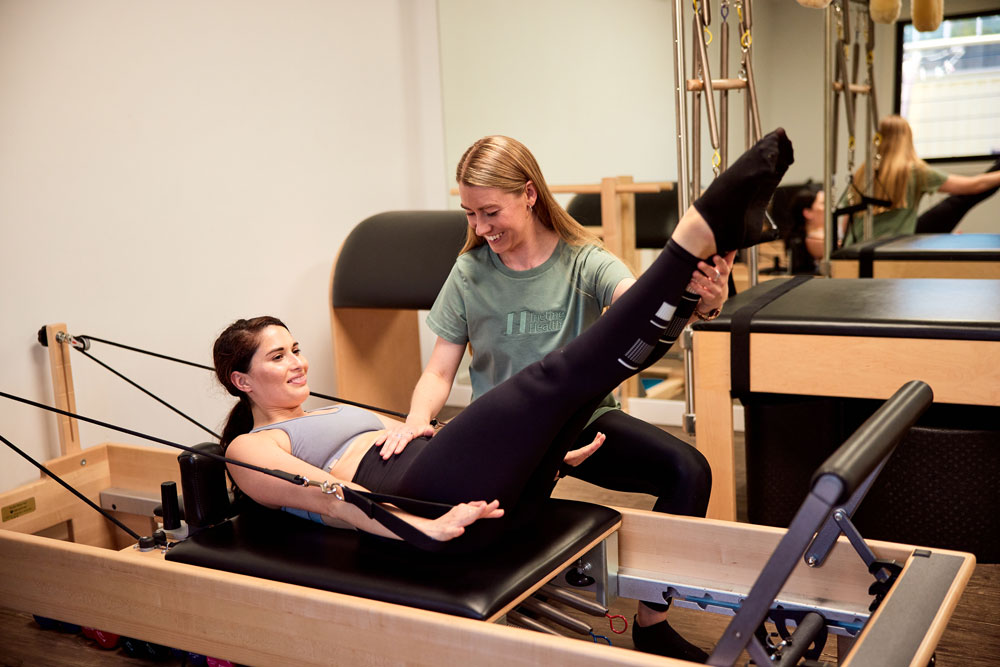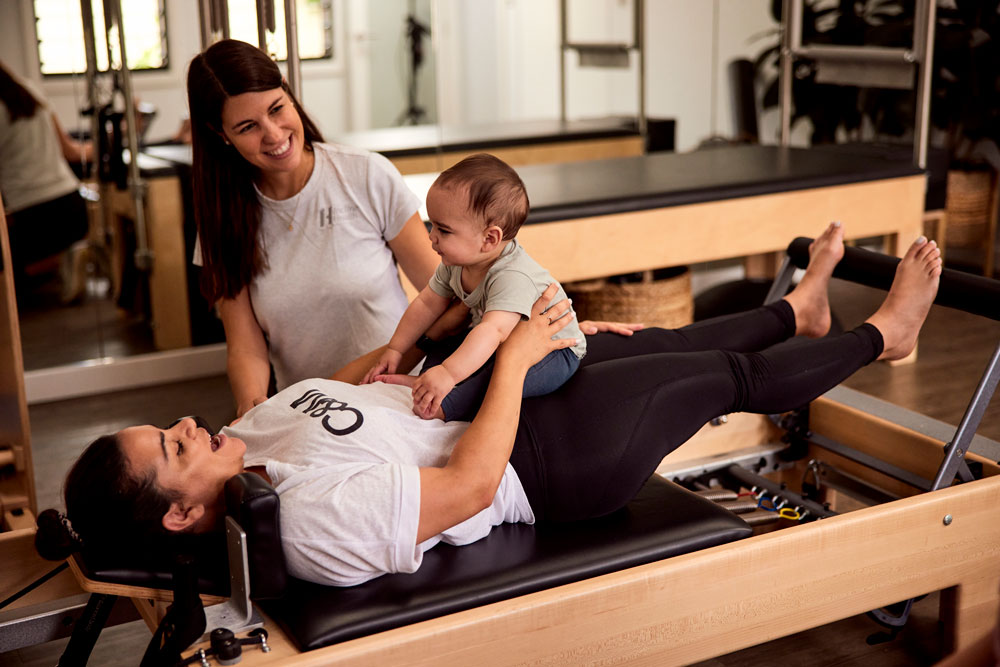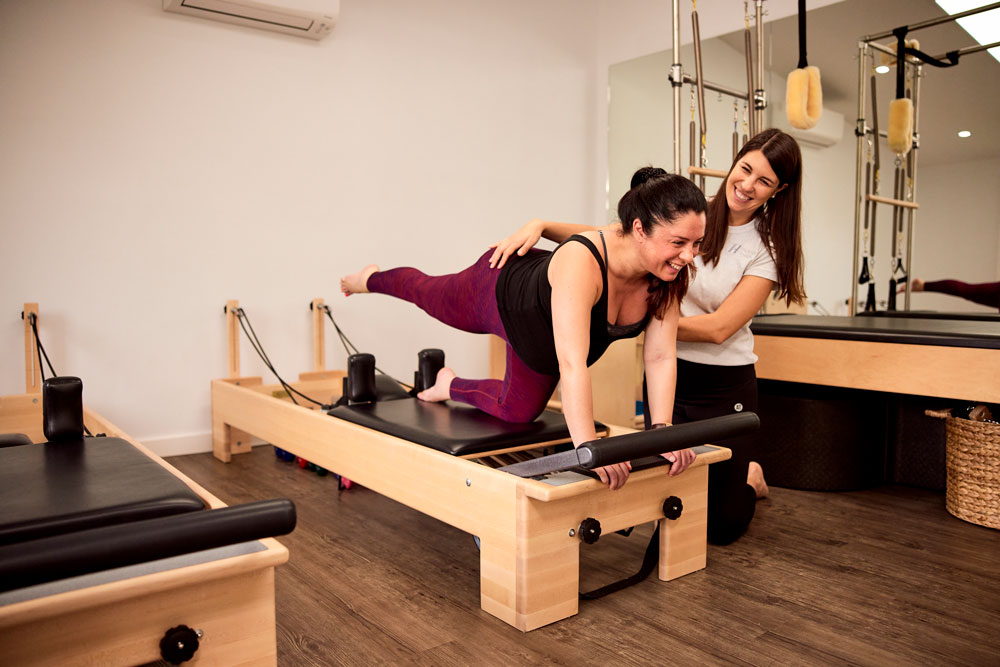The Difference Between Clinical Pilates and Pilates


Pilates is a well-known, transformative practice that strengthens the core, improves posture, and enhances flexibility, showcasing the benefits of clinical pilates . However, if you’ve ever searched for Pilates classes, you might have stumbled across “Clinical Pilates” and wondered: What exactly is the difference between Clinical Pilates and regular Pilates? Understanding these distinctions can help you find the program that perfectly aligns with your goals.
At Incline Health in Leichhardt, we offer tailored clinical pilates classes and small group classes designed to meet your specific needs. Learn more at www.inclinehealth.com.au.
What is Pilates?
Pilates is a low-impact, full-body workout developed by Joseph Pilates in the early 20th century. It focuses heavily on strengthening the core, improving balance, flexibility, and promoting overall body awareness through exercise physiology . Exercises can be performed on a mat or using specialised equipment such as Reformers and Wunda chairs.
What is Clinical Pilates?
Clinical Pilates builds on the traditional method but is prescribed and supervised by healthcare professionals like physiotherapists. It is designed specifically to aid injury rehabilitation programs, chronic condition management, and prevention of future injuries.
Historical Context: Evolution of Pilates
Initially, Joseph Pilates created his exercise regimen to rehabilitate injured soldiers during World War I. Over decades, Pilates and clinical transitioned from a rehabilitation method into a popular fitness regimen. Clinical Pilates developed when physiotherapists adopted and adapted Pilates for therapeutic use, emphasising tailored, condition-specific programs to enhance physical health .
Key Differences Between Clinical and Fitness Pilates
They share a foundation, but their objectives, execution, injury prevention and supervision differ substantially.


Supervision: Physio-led vs Instructor-led
In Clinical Pilates, sessions are often one-on-one or small groups under direct supervision by a qualified physiotherapist. This ensures that the clinical pilates program is safe, efficient, and aligned with your medical history in a supervised environment.
In contrast, Fitness Pilates classes are led by certified instructors, focusing on general wellbeing and pilates exercises for fitness without necessarily addressing underlying medical conditions.
Customisation and Assessment
One of the hallmarks of Clinical Pilates at Incline Health, Leichhardt, is the initial assessment and detailed evaluation conducted before designing your program. Physiotherapists evaluate your posture, strength, flexibility, movement patterns, and any injuries, creating a truly personalised pilates and clinical exercise plan.
Fitness Pilates, while adaptable to different fitness levels, generally follows a structured routine without detailed health assessments.
Target Audience: Fitness vs Rehabilitation
Clinical Pilates is ideal for individuals recovering from injuries, managing pain, or looking for preventive exercise regimens that enhance core stability and movement patterns tailored to specific health conditions.
Meanwhile, fitness Pilates appeals to those seeking to build strength, tone muscles, and increase flexibility as part of their general fitness routine.
Equipment Used
Clinical Pilates aim to utilises pilates equipment, including specialised rehabilitation equipment like the Reformer, trapeze table, and clinical-grade stability chairs. These apparatuses enable fine-tuned adjustments for optimal recovery and enhancing the benefits of clinical pilates.
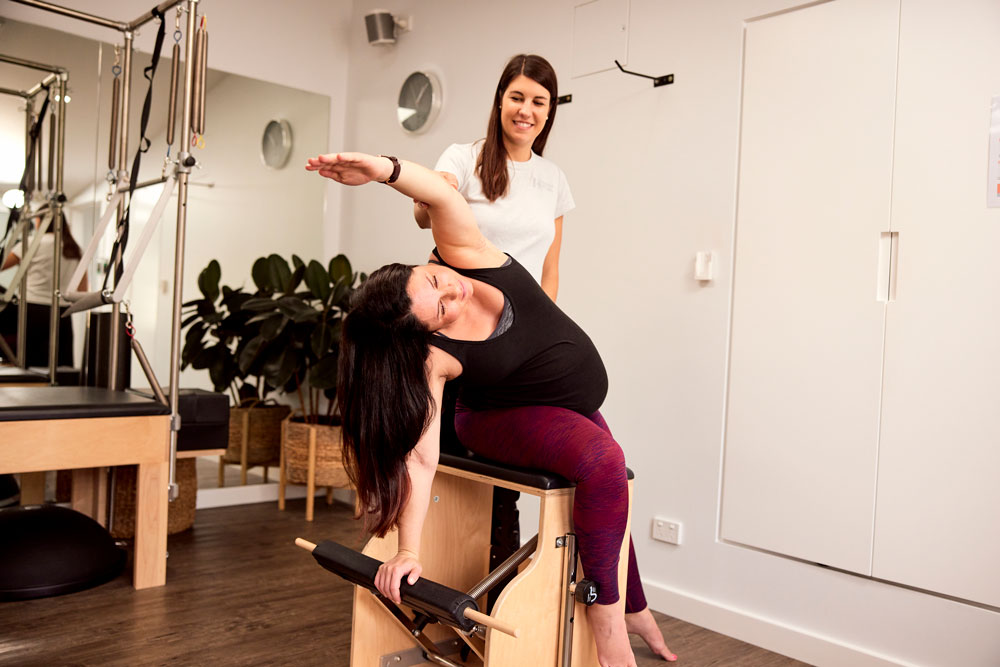

Fitness Pilates also uses Reformers and mats but may involve additional props like rings, balls, and resistance bands without clinical modifications.
Insurance Rebates in Australia
One significant advantage of Clinical Pilates and exercise physiologists is the potential eligibility for private health insurance rebates, especially when prescribed as part of a physiotherapy treatment plan. This can significantly offset the cost.
Unfortunately, fitness Pilates classes, even though beneficial, are typically considered general fitness and are not rebate-eligible under Australian private health insurance, unlike sessions led by exercise physiologists .
When to Choose Clinical Pilates
Choosing Clinical Pilates is ideal when:
- Post-surgery: Safely recover strength and mobility after surgical procedures.
- Chronic pain or conditions: Manage long-term back pain, scoliosis, arthritis, and more.
- Injury recovery or prevention: Address musculoskeletal imbalances and prevent future injuries.
- Pre/post-natal considerations: Support the changing body during and after pregnancy safely.
At Incline Health, Leichhardt, our Clinical Pilates sessions are designed to support you at every stage of your recovery.
When Regular Pilates Is a Great Fit
Fitness Pilates may be a perfect choice if you:
- Are seeking general strength and flexibility: Build a solid, balanced physique.
- Enjoy group class dynamics: Thrive in an energetic, communal setting.
- Require budget-friendly fitness options: Typically more affordable than Clinical Pilates.
Common Misconceptions
“Clinical Pilates is only for injured people”
While Clinical Pilates is excellent for injury recovery, it is equally beneficial for those looking to prevent injuries, manage pelvic floor issues, posture issues, or enhance physical performance.
“Pilates is only for women”
Pilates benefits everyone! Men and women alike gain strength, flexibility, and resilience from both Clinical and fitness Pilates programs.
“They’re basically the same thing”
Although they share foundational exercises, the level of customisation, expert knowledge supervision, and purpose distinguishes Clinical Pilates from regular Pilates significantly.
Considerations Before Choosing a Pilates Program
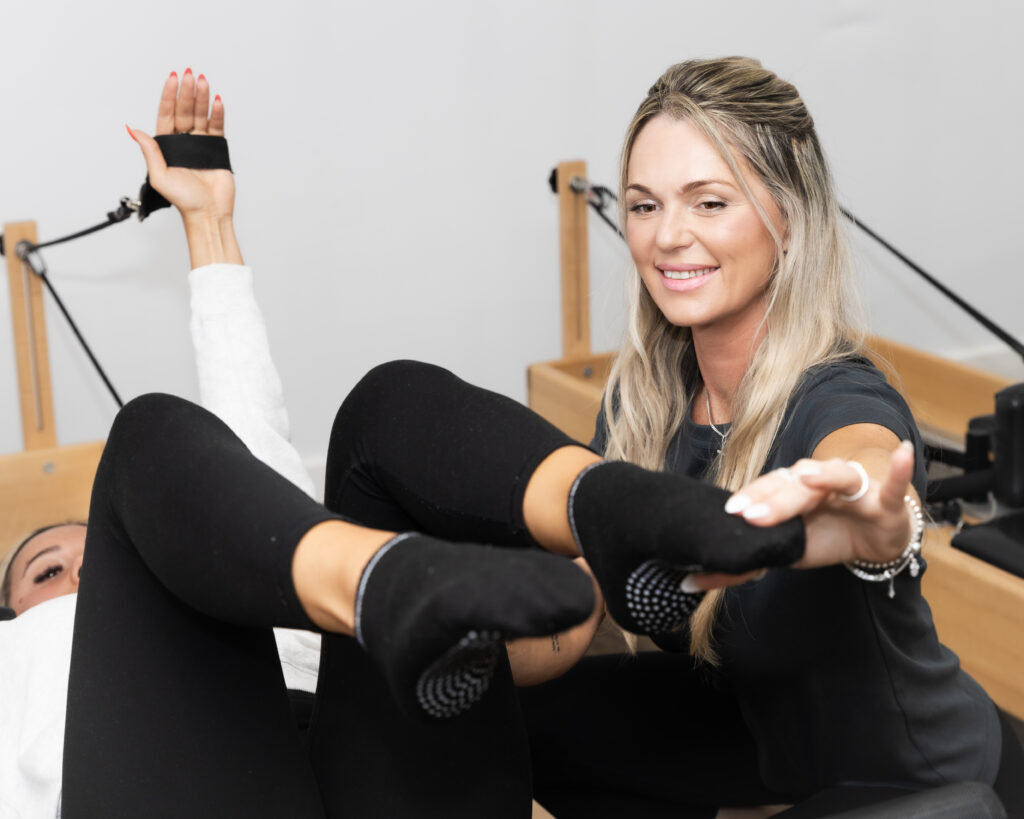

- Do you have current injuries or pain?
Opt for Clinical Pilates under professional supervision.
- Do you prefer group or one-on-one sessions?
Choose based on your comfort level and goals.
- What are your health and fitness objectives?
Define your goals to select the right style of Pilates.
At Incline Health, Leichhardt, we help you navigate these considerations to find the perfect clinical pilates offer for your body and lifestyle.
Frequently Asked Questions
What is the difference between Pilates and Clinical Pilates?
Clinical Pilates is customised with targeted exercises , physiotherapist-led, and medically focused, whereas regular Pilates targets overall fitness and is instructor-led.
What are Clinical Pilates exercises?
They include controlled, corrective movements designed to improve stability, strength, and mobility, often tailored to address specific injuries or weaknesses.
What is the hardest type of Pilates?
Advanced Reformer Pilates and classical sequences are often the most challenging, requiring high levels of control, strength, and endurance.
Does a Clinical Pilates instructor need extra qualifications?
Yes. Clinical Pilates is typically delivered by physiotherapists or those with additional rehabilitation-specific Pilates certifications delivering clinical assessment.
Is Clinical Pilates the Solution You’ve Been Looking For?
Whether you’re recovering from an injury, managing pain, or proactively building a resilient body with improved strength, Clinical Pilates might be the perfect solution for improving your overall health .
At Incline Health in Leichhardt, we are committed to helping you move better, feel better, and live better. Visit us to learn more or schedule your clinical assessment and consultation today.



